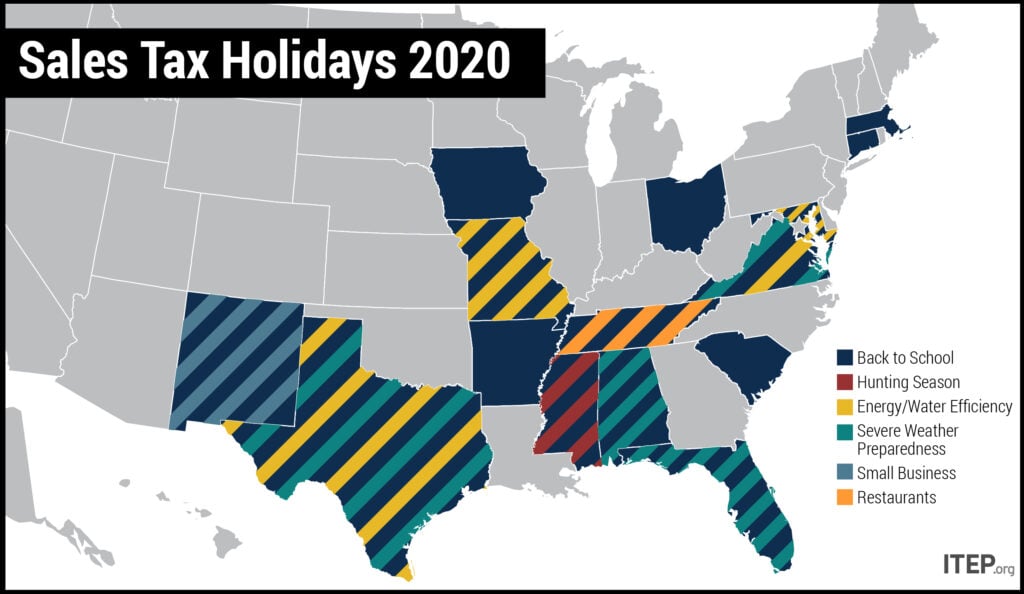In South America, Colombia kept its COVID-19 cases relatively low for much of the year by embracing distancing and quarantining measures. This did not protect the country from the economic and tax revenue losses affecting most nations but greatly reduced its number of lost lives.
After months of this relative success, officials decided to use some of their already limited tax revenues to encourage as many people as possible to swarm crowded indoor spaces all at once, creating “a flood of people into retail stores in Black-Friday style mobs.” Since then, coronavirus cases have risen and lockdown policies have been re-instated, lengthened and strengthened.
If this “public health fiasco” sounds like shockingly bad policymaking for the people of Colombia, South America, consider that this very policy will be used in the coming weeks in Columbia, South Carolina, Columbia, Missouri, and Columbus, Ohio. In fact, 16 U.S. states will hold “sales tax holidays” this year. As ITEP’s newly updated brief explains, these events offer dubious benefits at significant public expense even in normal years, problems which are only amplified in the context of the COVID-19 pandemic.
For example, sales tax holidays:
- Will deprive state and local services of more than $300 million this year—a cost felt even more acutely as the pandemic wreaks havoc on budgets with major funding cuts already in place;
- Contradict public health guidance against large in-person gatherings, including restrictions on the capacity in retail stores—which is particularly true in Florida and Missouri, where online sales are always exempt from sales taxes so the holidays only apply to in-person shopping;
- Are most likely to benefit higher-income households who can time their purchases as they please and shop around online—an inequity with even higher stakes as these are also the households most likely to be able to shop safely during the pandemic, whereas lower-income families who lack the conveniences of flexible timing, credit cards, and internet access are not only less likely to be able to take advantage of a holiday, but may even have to choose between keeping their families safe or going into crowded stores during peak hours to get the savings; and
- Fail to deliver on their promised economic benefits—a policy debacle that is even less excusable when families, businesses, and local economies are in dire need of policy solutions that actually work.
Read ITEP’s newly updated brief on sales tax holidays here.





